new to the gluten free journey?
new to the gluten free journey?

Contents
Toggle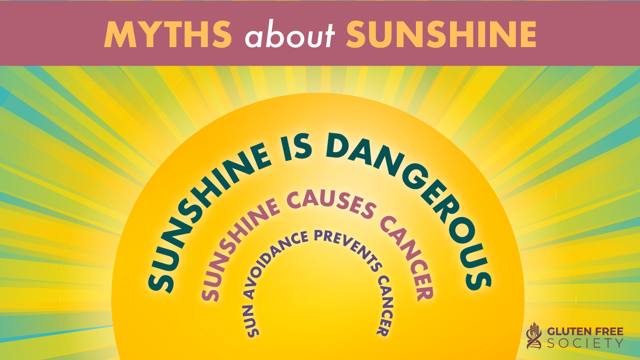 This article will look at why this is the case. We will discuss:
This article will look at why this is the case. We will discuss:
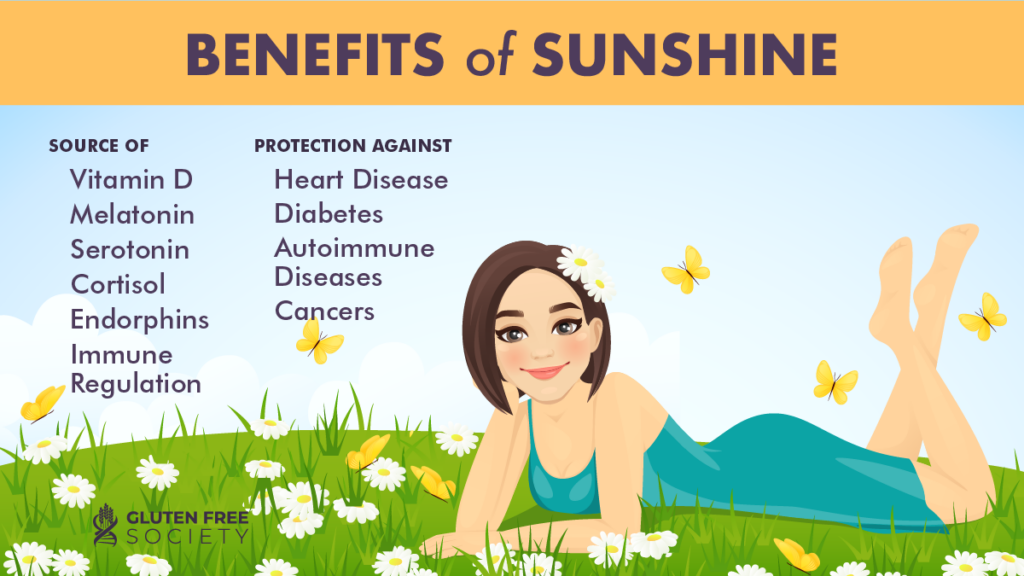 1.Vitamin D production
Vitamin D deficiency affects almost 50% of the population worldwide. In the United States, the overall prevalence rate of vitamin D deficiency is approximately 41%, with the highest rate seen in blacks (82%), followed by Hispanics (69%). For this survey, vitamin D deficiency was defined as a serum 25-hydroxyvitamin D concentration of ≤20 ng/mL (50 nmol/L), but optimal levels of vitamin D status are actually much higher, at 30-100 ng/mL.
Unlike other essential vitamins that must be obtained from diet or supplementation, vitamin D can be synthesized in the skin through a photosynthetic reaction triggered by exposure to the sun’s UVB rays.
These widespread deficiencies can primarily be attributed to limited sunlight exposure (from outdoor time and/or excessive use of sun blocking means like sunscreen and skin cover) as well as environmental factors like air pollution that reduce exposure to sunlight, which is required for vitamin D production in the skin.
Vitamin D deficiency is a risk factor for a number of diseases. And in fact, emerging research supports the possible role of vitamin D against cancer, heart disease, fractures and falls, autoimmune diseases, influenza, type-2 diabetes, and depression. Current studies suggest that we may need more vitamin D than presently recommended to prevent chronic disease. Research also suggests that increasing serum 25(OH)D levels is the most cost-effective way to reduce global mortality rates, as “the cost of vitamin D is very low and there are few adverse effects from oral intake and/or frequent moderate UVB [exposure] with sufficient body surface area exposed.”
Vitamin D deficiency is also common in those with celiac disease, as it is absorbed through diet and supplementation in the small intestine, which is generally impaired in those with celiac disease. Furthermore, for those with gluten issues, vitamin D deficiency can exacerbate and contribute to the development of autoimmune diseases.
2. Melatonin, serotonin, and cortisol regulation
Research shows that vitamin D helps to regulate melatonin, serotonin, and cortisol in the body.
Melatonin is a hormone produced by the brain in response to darkness. It supports the timing of the body’s circadian rhythms and with sleep. Sunlight helps to regulate melatonin production, which in turn affects sleep quality and a number of other health parameters associated with sleep.
Serotonin is a neurotransmitter or chemical messenger that is believed to help regulate mood. One study found that the rate of production of serotonin by the brain was directly related to the prevailing duration of bright sunlight. Serotonin rose rapidly with increased luminosity. The study suggests that changes in the release of serotonin by the brain, which can be triggered by the sunlight underlie mood seasonality and seasonal affective disorder.
Cortisol is a hormone involved in the body’s stress response. Research shows that sunlight induces gene expression in the adrenals, helping to regulate the body’s response to stress.
3. Endorphin production
Endorphins are considered natural opiates and often referred to as “feel good hormones.” UV rays increase blood levels of endorphins, which in turn leads to enhanced mood and well being. In fact, the June 2003 Journal of Investigative Dermatology, and a study published in November of 2005 in Molecular and Cellular Endocrinology suggest that the cutaneous pigmentary system is an important stress-response element of the skin.
4. Inflammation and Immune Regulation
Research shows that sunlight, through vitamin D and melatonin, also helps to support a healthy inflammatory response and helps to regulate the immune system.
1.Vitamin D production
Vitamin D deficiency affects almost 50% of the population worldwide. In the United States, the overall prevalence rate of vitamin D deficiency is approximately 41%, with the highest rate seen in blacks (82%), followed by Hispanics (69%). For this survey, vitamin D deficiency was defined as a serum 25-hydroxyvitamin D concentration of ≤20 ng/mL (50 nmol/L), but optimal levels of vitamin D status are actually much higher, at 30-100 ng/mL.
Unlike other essential vitamins that must be obtained from diet or supplementation, vitamin D can be synthesized in the skin through a photosynthetic reaction triggered by exposure to the sun’s UVB rays.
These widespread deficiencies can primarily be attributed to limited sunlight exposure (from outdoor time and/or excessive use of sun blocking means like sunscreen and skin cover) as well as environmental factors like air pollution that reduce exposure to sunlight, which is required for vitamin D production in the skin.
Vitamin D deficiency is a risk factor for a number of diseases. And in fact, emerging research supports the possible role of vitamin D against cancer, heart disease, fractures and falls, autoimmune diseases, influenza, type-2 diabetes, and depression. Current studies suggest that we may need more vitamin D than presently recommended to prevent chronic disease. Research also suggests that increasing serum 25(OH)D levels is the most cost-effective way to reduce global mortality rates, as “the cost of vitamin D is very low and there are few adverse effects from oral intake and/or frequent moderate UVB [exposure] with sufficient body surface area exposed.”
Vitamin D deficiency is also common in those with celiac disease, as it is absorbed through diet and supplementation in the small intestine, which is generally impaired in those with celiac disease. Furthermore, for those with gluten issues, vitamin D deficiency can exacerbate and contribute to the development of autoimmune diseases.
2. Melatonin, serotonin, and cortisol regulation
Research shows that vitamin D helps to regulate melatonin, serotonin, and cortisol in the body.
Melatonin is a hormone produced by the brain in response to darkness. It supports the timing of the body’s circadian rhythms and with sleep. Sunlight helps to regulate melatonin production, which in turn affects sleep quality and a number of other health parameters associated with sleep.
Serotonin is a neurotransmitter or chemical messenger that is believed to help regulate mood. One study found that the rate of production of serotonin by the brain was directly related to the prevailing duration of bright sunlight. Serotonin rose rapidly with increased luminosity. The study suggests that changes in the release of serotonin by the brain, which can be triggered by the sunlight underlie mood seasonality and seasonal affective disorder.
Cortisol is a hormone involved in the body’s stress response. Research shows that sunlight induces gene expression in the adrenals, helping to regulate the body’s response to stress.
3. Endorphin production
Endorphins are considered natural opiates and often referred to as “feel good hormones.” UV rays increase blood levels of endorphins, which in turn leads to enhanced mood and well being. In fact, the June 2003 Journal of Investigative Dermatology, and a study published in November of 2005 in Molecular and Cellular Endocrinology suggest that the cutaneous pigmentary system is an important stress-response element of the skin.
4. Inflammation and Immune Regulation
Research shows that sunlight, through vitamin D and melatonin, also helps to support a healthy inflammatory response and helps to regulate the immune system.
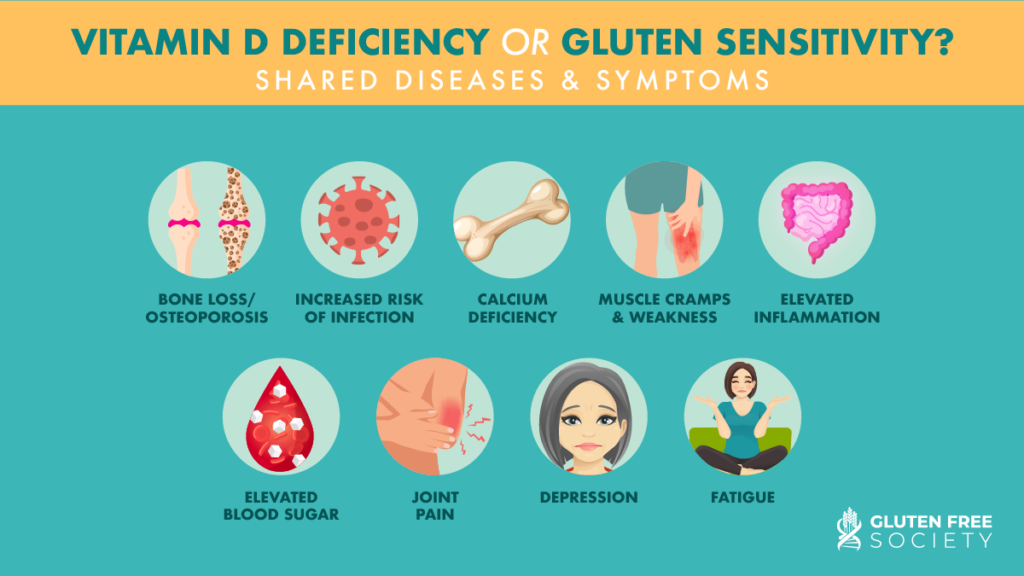 People with celiac disease and gluten sensitivity are at greater risk for vitamin D deficiency due to dietary malabsorption. This makes exposure to sunlight a major factor for maintaining adequate vitamin D status and for maintaining optimal health and helping to prevent a number of disease conditions.
Furthermore, the relationship between vitamin D status and celiac disease may work in the opposite direction as well. Research suggests that lack of sunshine and vitamin D deficiency can serve as a risk factor for the development of celiac disease.
As there is a significant overlap in symptoms between gluten sensitivity and vitamin D deficiency symptoms, it is important to test for both conditions in order to help manage and mitigate risk for both. Shared symptoms include depression, sleep disruption, osteoporosis, arthritis, myalgia, cancer, and multiple sclerosis.
People with celiac disease and gluten sensitivity are at greater risk for vitamin D deficiency due to dietary malabsorption. This makes exposure to sunlight a major factor for maintaining adequate vitamin D status and for maintaining optimal health and helping to prevent a number of disease conditions.
Furthermore, the relationship between vitamin D status and celiac disease may work in the opposite direction as well. Research suggests that lack of sunshine and vitamin D deficiency can serve as a risk factor for the development of celiac disease.
As there is a significant overlap in symptoms between gluten sensitivity and vitamin D deficiency symptoms, it is important to test for both conditions in order to help manage and mitigate risk for both. Shared symptoms include depression, sleep disruption, osteoporosis, arthritis, myalgia, cancer, and multiple sclerosis.
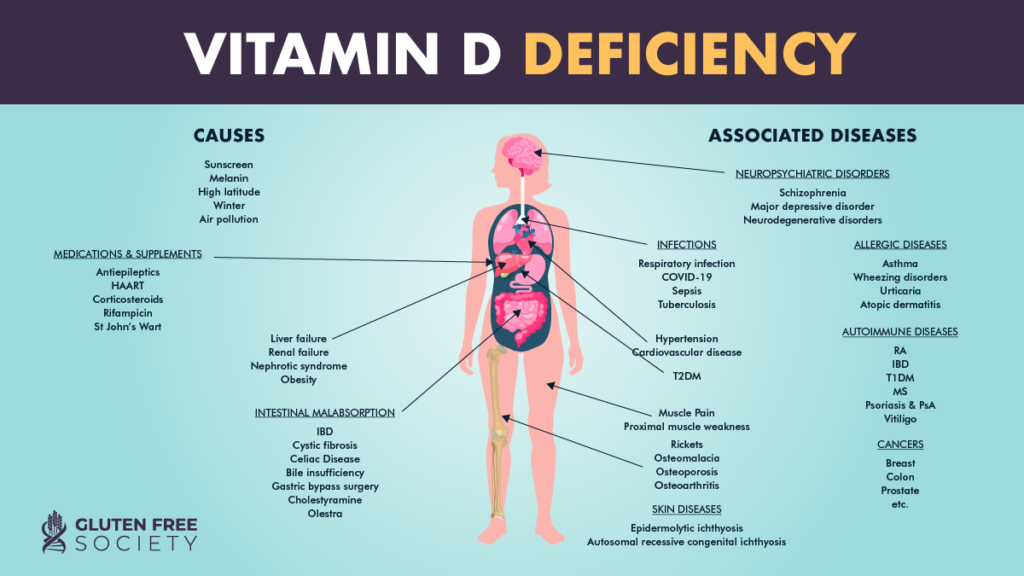
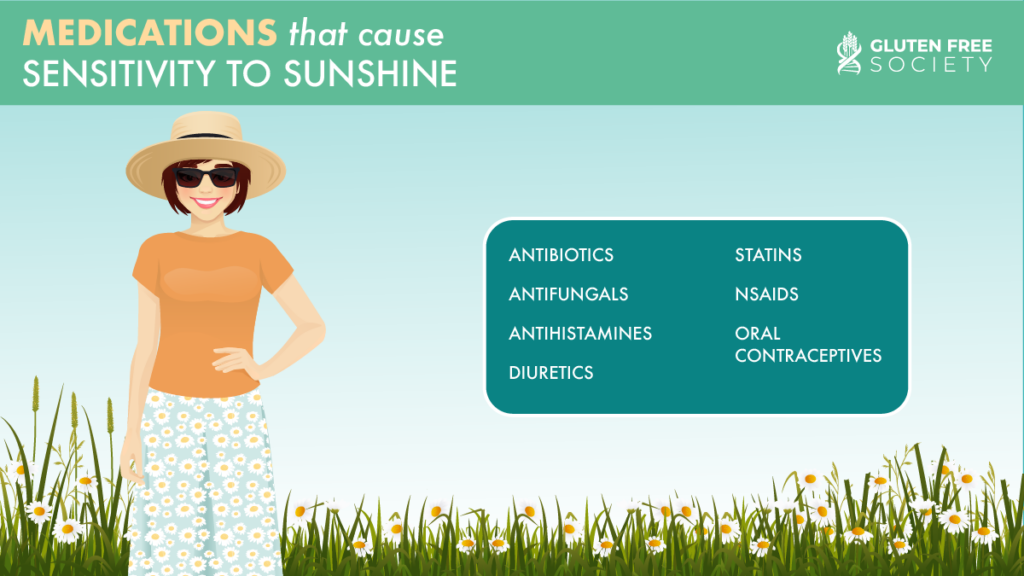
Stay up-to-date with the latest articles, tips, recipes and more.

*These statements have not been evaluated by the Food and Drug Administration. This product is not intended to diagnose, treat, cure or prevent any disease.
If you are pregnant, nursing, taking medication, or have a medical condition, consult your physician before using this product.
The entire contents of this website are based upon the opinions of Peter Osborne, unless otherwise noted. Individual articles are based upon the opinions of the respective author, who retains copyright as marked. The information on this website is not intended to replace a one-on-one relationship with a qualified health care professional and is not intended as medical advice. It is intended as a sharing of knowledge and information from the research and experience of Peter Osborne and his community. Peter Osborne encourages you to make your own health care decisions based upon your research and in partnership with a qualified health care professional.